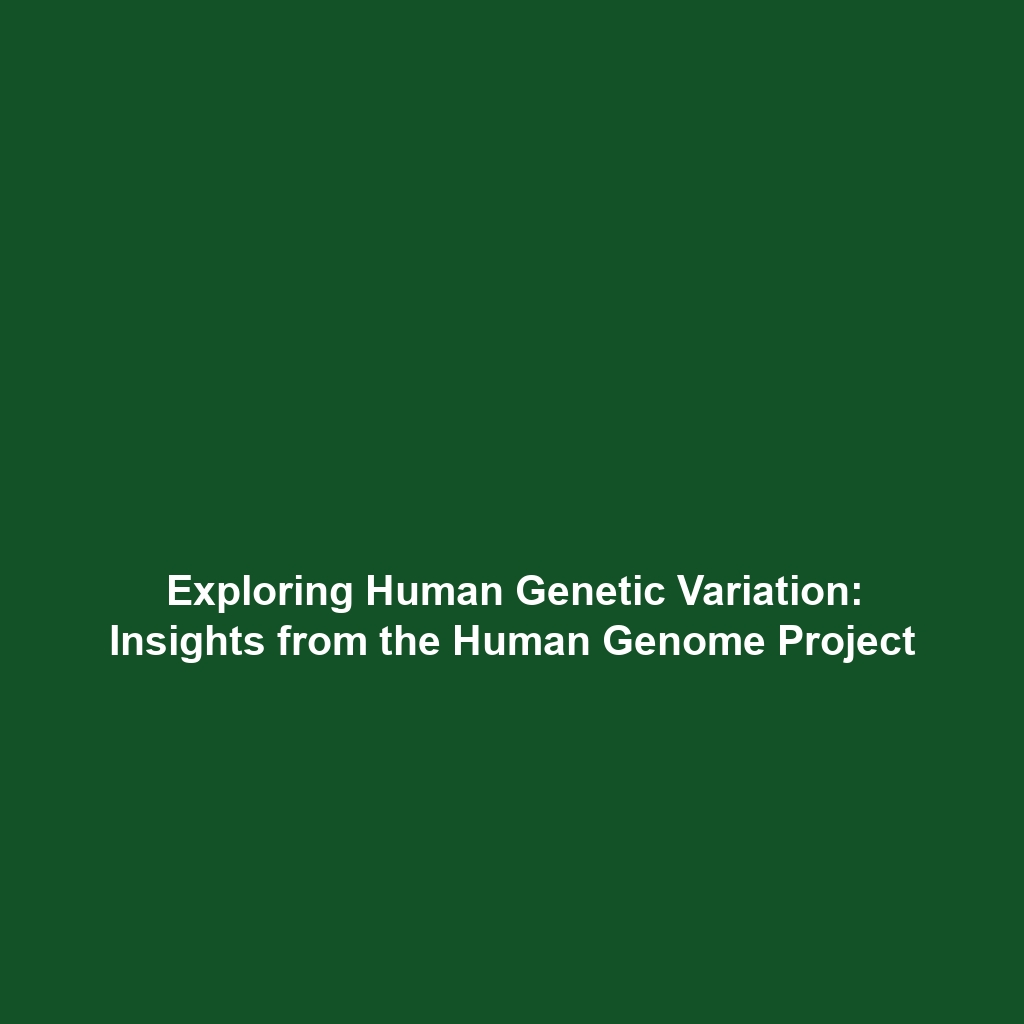Understanding Human Genetic Variation within the Human Genome Project
Introduction:
Human genetic variation refers to the genetic differences both within and among populations. This variation is fundamental to our understanding of genetics and is a significant part of the Human Genome Project (HGP). The HGP sought to map the entire human genome, and its findings have provided critical insights into how genetic variations influence health, disease susceptibility, and response to treatment. Overall, human genetic variation is not just a topic of academic interest; it holds implications for personalized medicine and genetics research.
Key Concepts of Human Genetic Variation
Human genetic variation encompasses several crucial principles that help explain the diversity found in human populations. Below are key concepts associated with this topic:
- SNPs (Single Nucleotide Polymorphisms): These are the most common type of genetic variation among people, affecting a single nucleotide. They serve as important markers for genetic research.
- Copy Number Variations (CNVs): These variations involve changes in the number of copies of a particular gene and can influence susceptibility to diseases.
- InDel Variations: Insertions and deletions in genetic sequences can lead to significant differences in gene function and phenotype.
Understanding these concepts is essential for recognizing how human genetic variation fits into the broader category of the Human Genome Project, which aimed to identify, sequence, and map all the genes in the human genome.
Applications and Real-World Uses
Human genetic variation has numerous applications, particularly following the advancements made by the Human Genome Project. Some of the most significant uses include:
- Personalized Medicine: By understanding individual genetic variations, healthcare professionals can tailor treatments that are more effective for each patient.
- Genetic Testing: Genetic variations help inform testing for genetic disorders, allowing for early diagnosis and intervention strategies.
- Pharmacogenomics: Understanding how genetic variations affect drug metabolism enables the optimization of pharmaceuticals tailored to individuals.
These applications exemplify how human genetic variation is utilized in the context of the Human Genome Project.
Current Challenges
Despite the progress made in mapping human genetic variation, several challenges persist:
- Ethical Concerns: There are ongoing debates regarding privacy, consent, and potential misuse of genetic information.
- Data Interpretation: Large volumes of genetic data can complicate the interpretation of variation significance.
- Access to Resources: Disparities in access to genetic testing and healthcare hinder the equitable application of findings from human genetic variation studies.
These challenges highlight the ongoing need for comprehensive research and ethical frameworks in the exploration of human genetic variation.
Future Research and Innovations
The future of human genetic variation research promises to bring significant innovations and breakthroughs:
- Advancements in Sequencing Technologies: Next-generation sequencing technologies are rapid and cost-effective, enabling deeper exploration of genetic variation.
- CRISPR Gene Editing: Innovations like CRISPR may offer ways to address genetic disorders associated with variations.
- Artificial Intelligence in Genetics: AI is increasingly being used to analyze genetic data, which could lead to new discoveries and improvements in personalized healthcare.
Conclusion
In summary, human genetic variation is a vital component of the Human Genome Project and holds immense potential for medical advancements and research. Understanding genetic diversity not only enhances our comprehension of human biology but also paves the way for personalized medicine and future treatments. As research continues, staying informed will be key for both professionals and the public. For further reading on related topics, explore our articles on gene editing and genetic testing.
